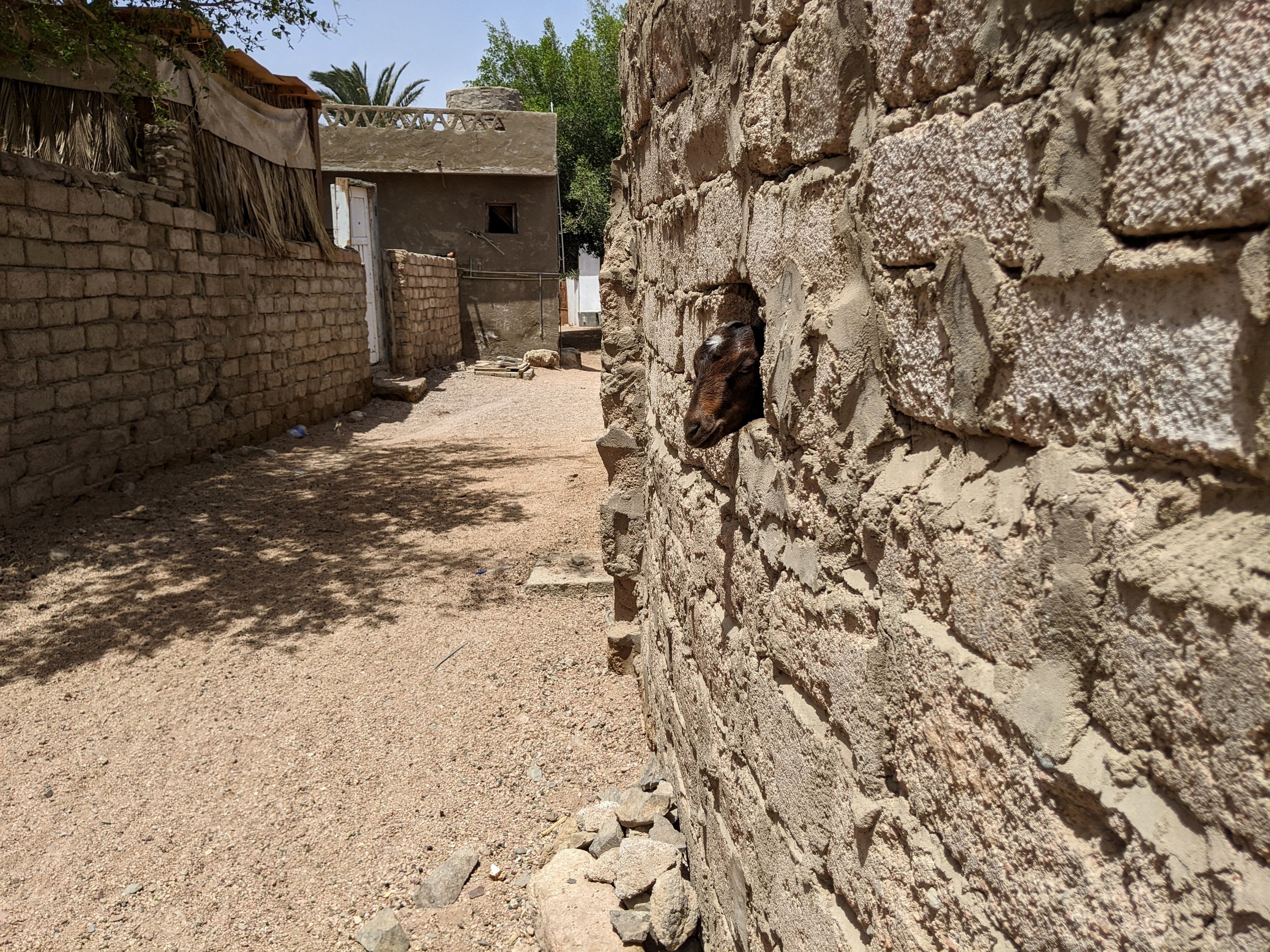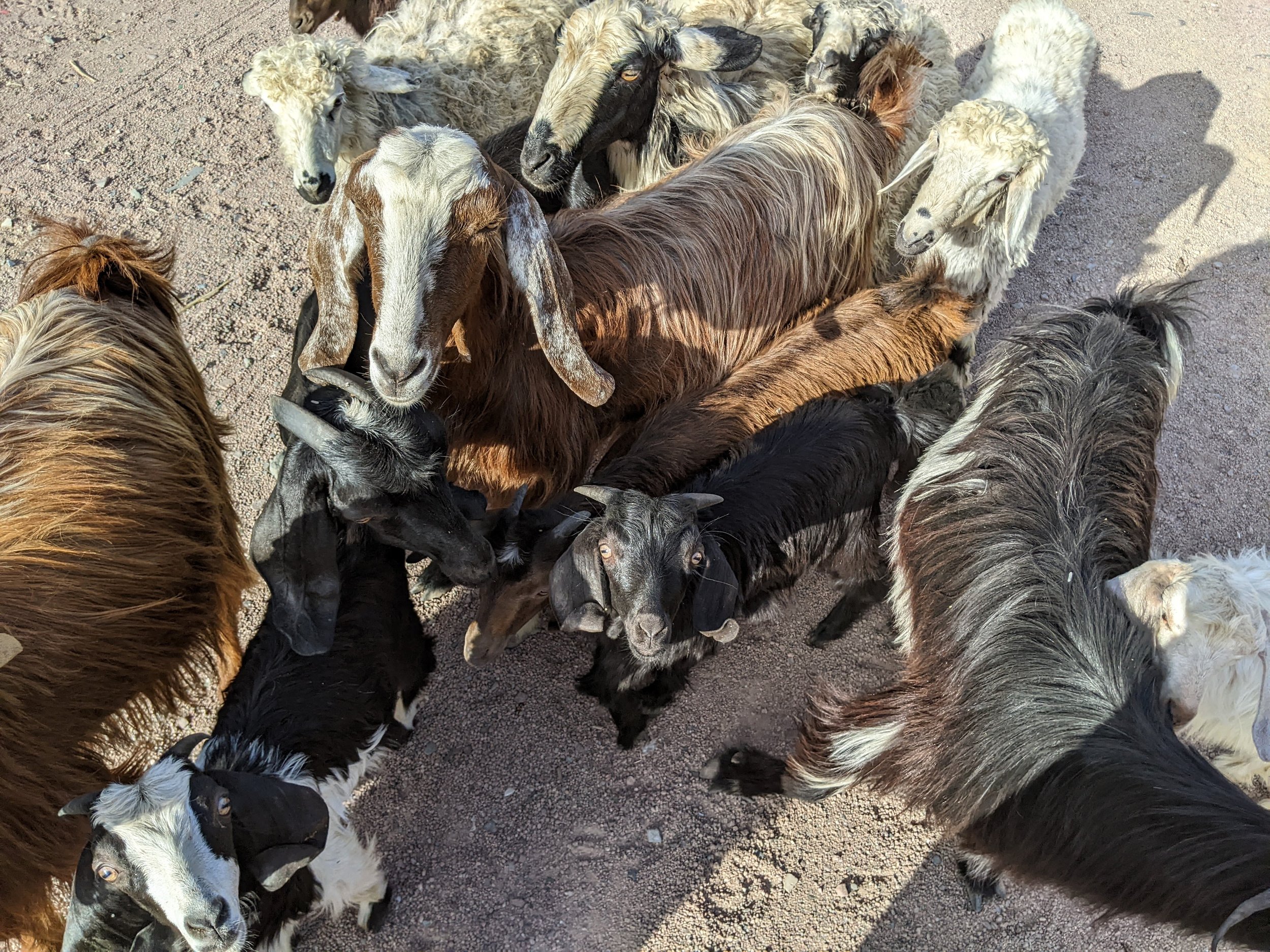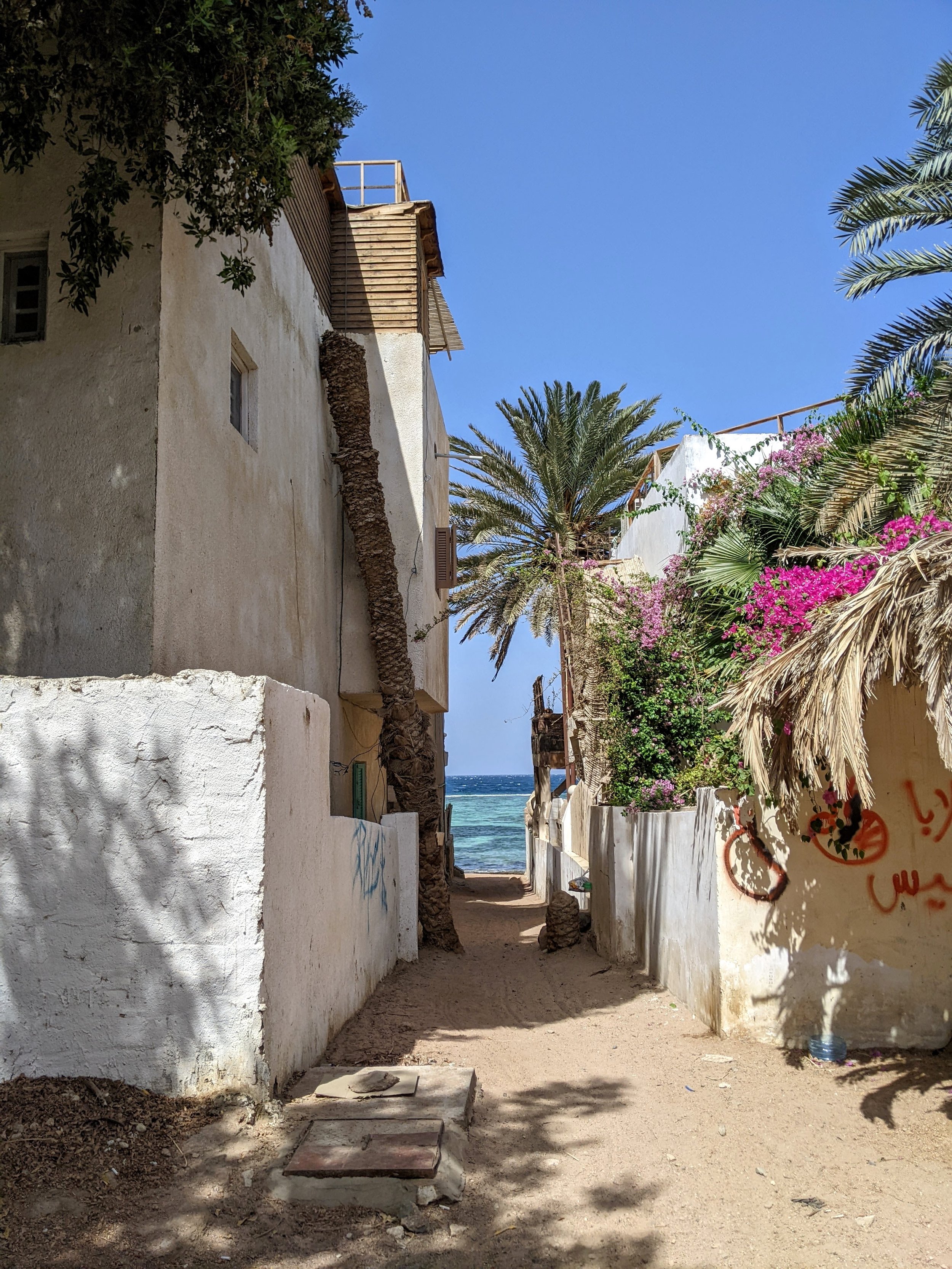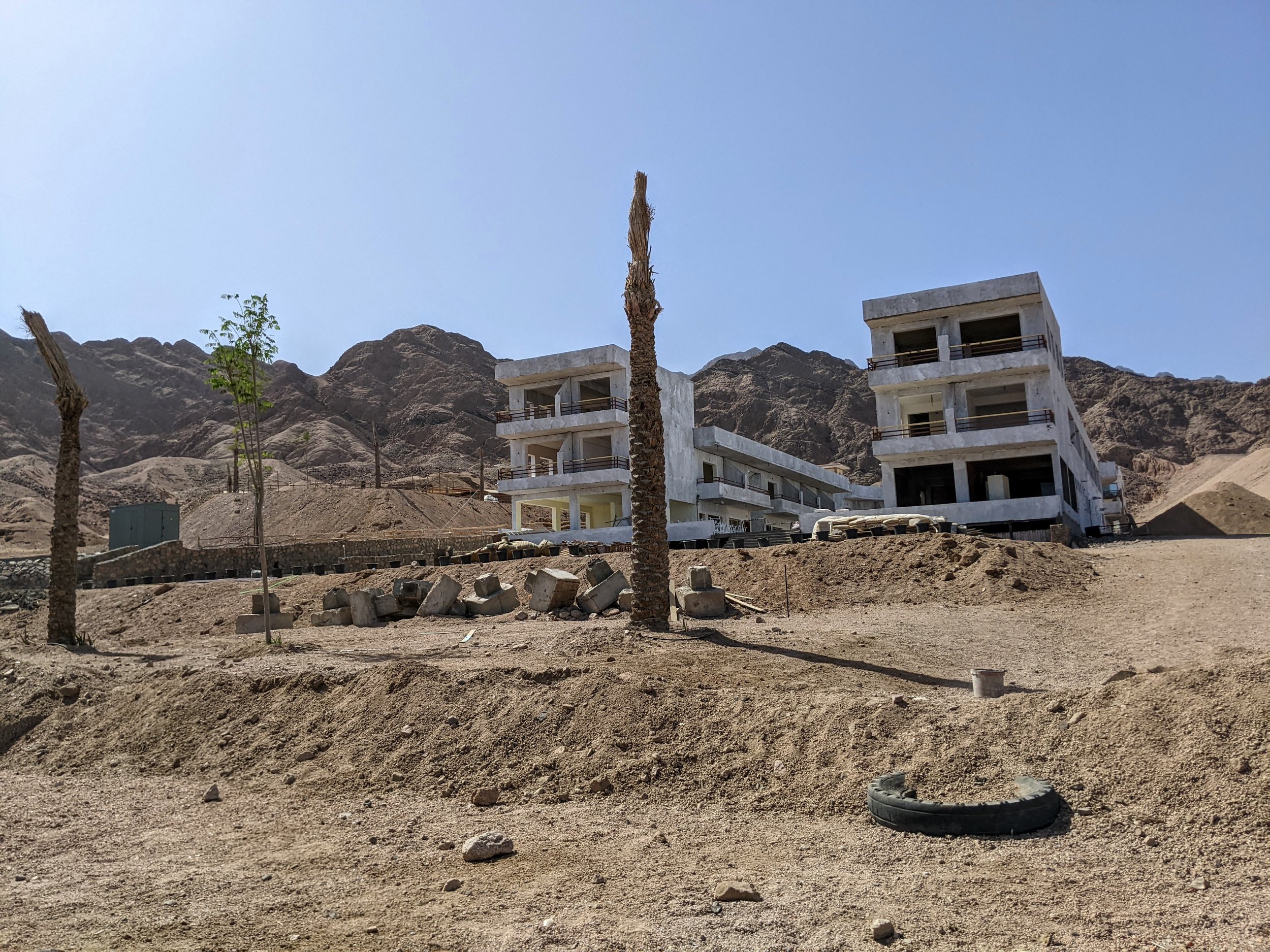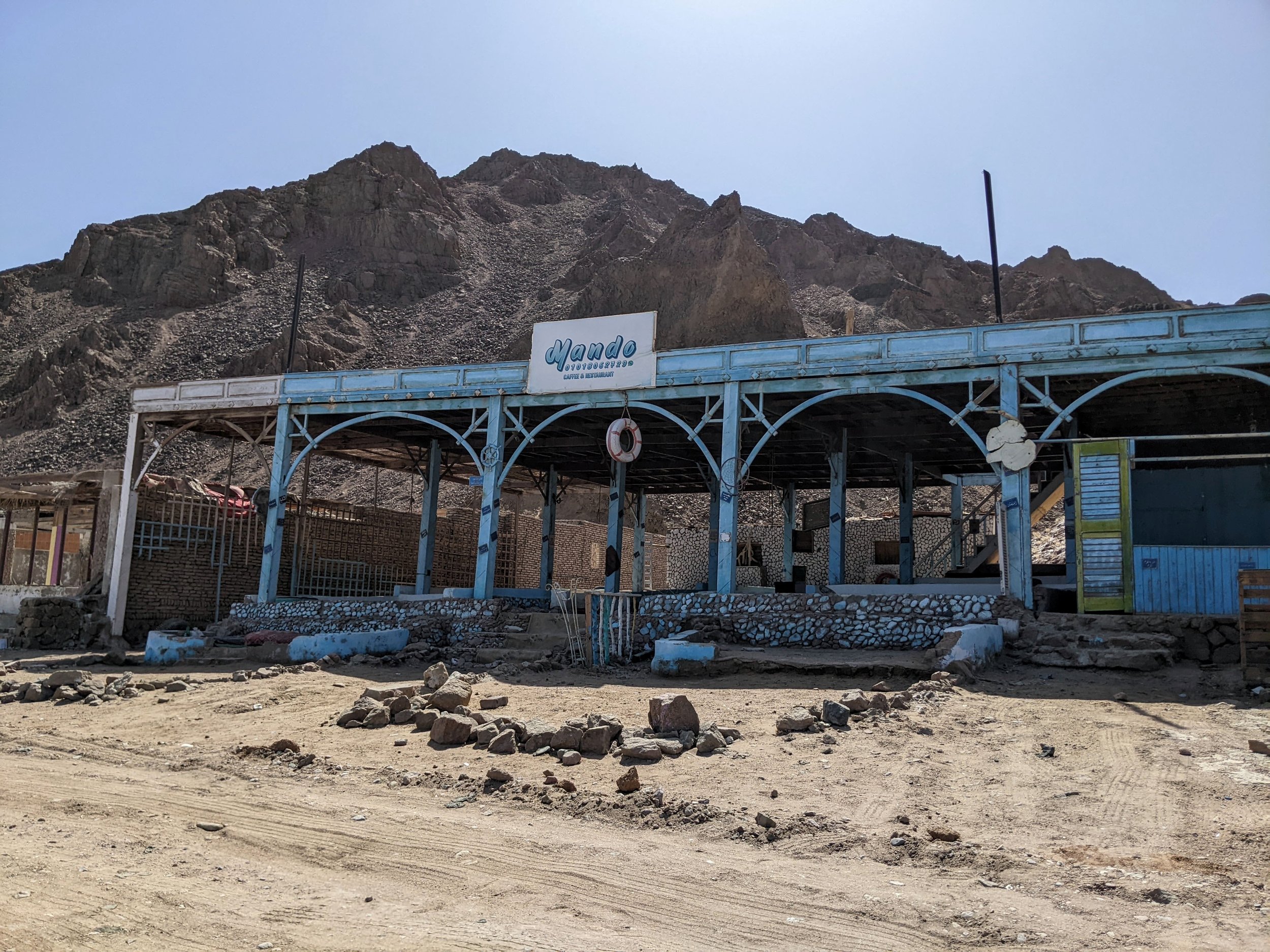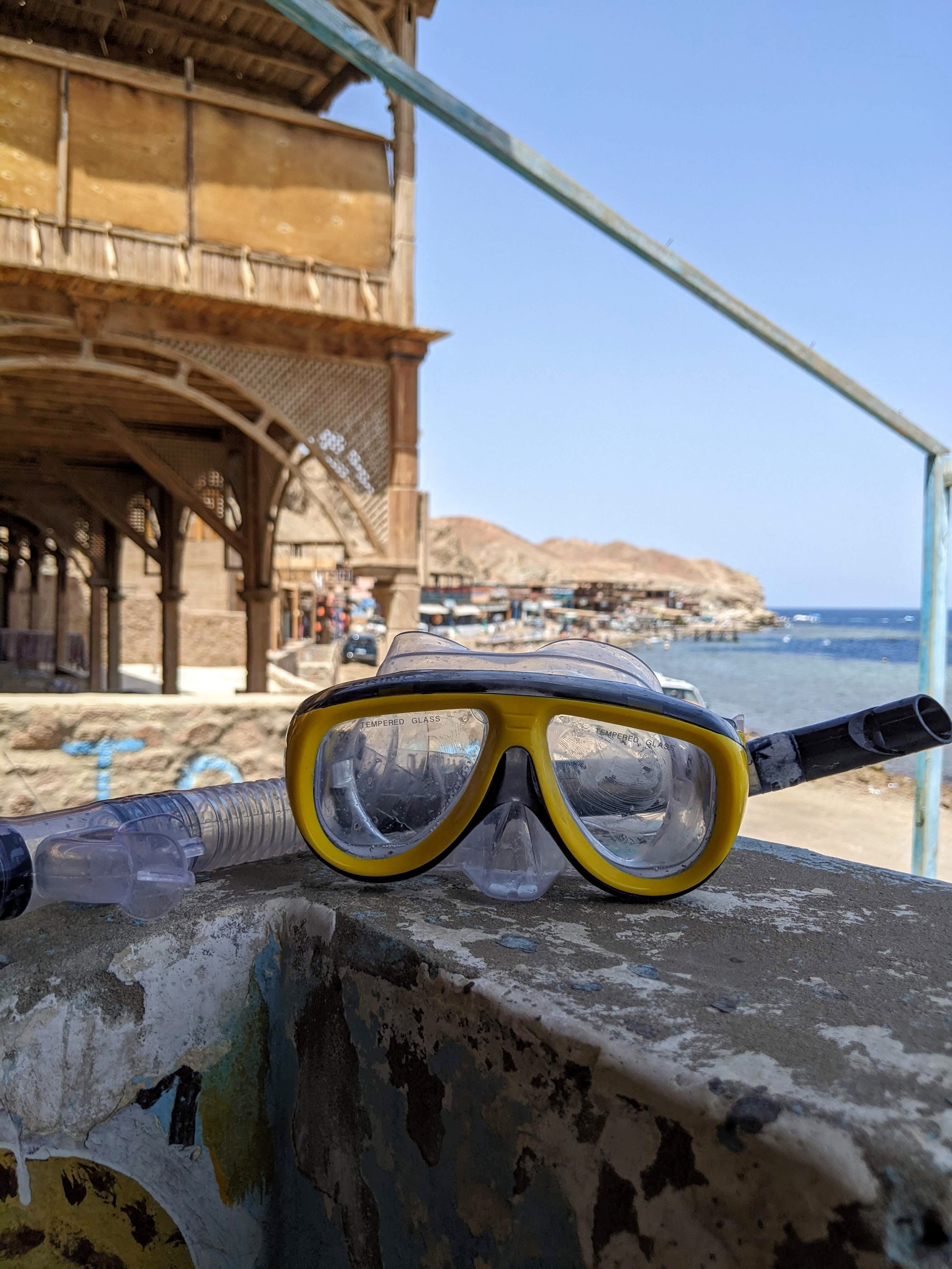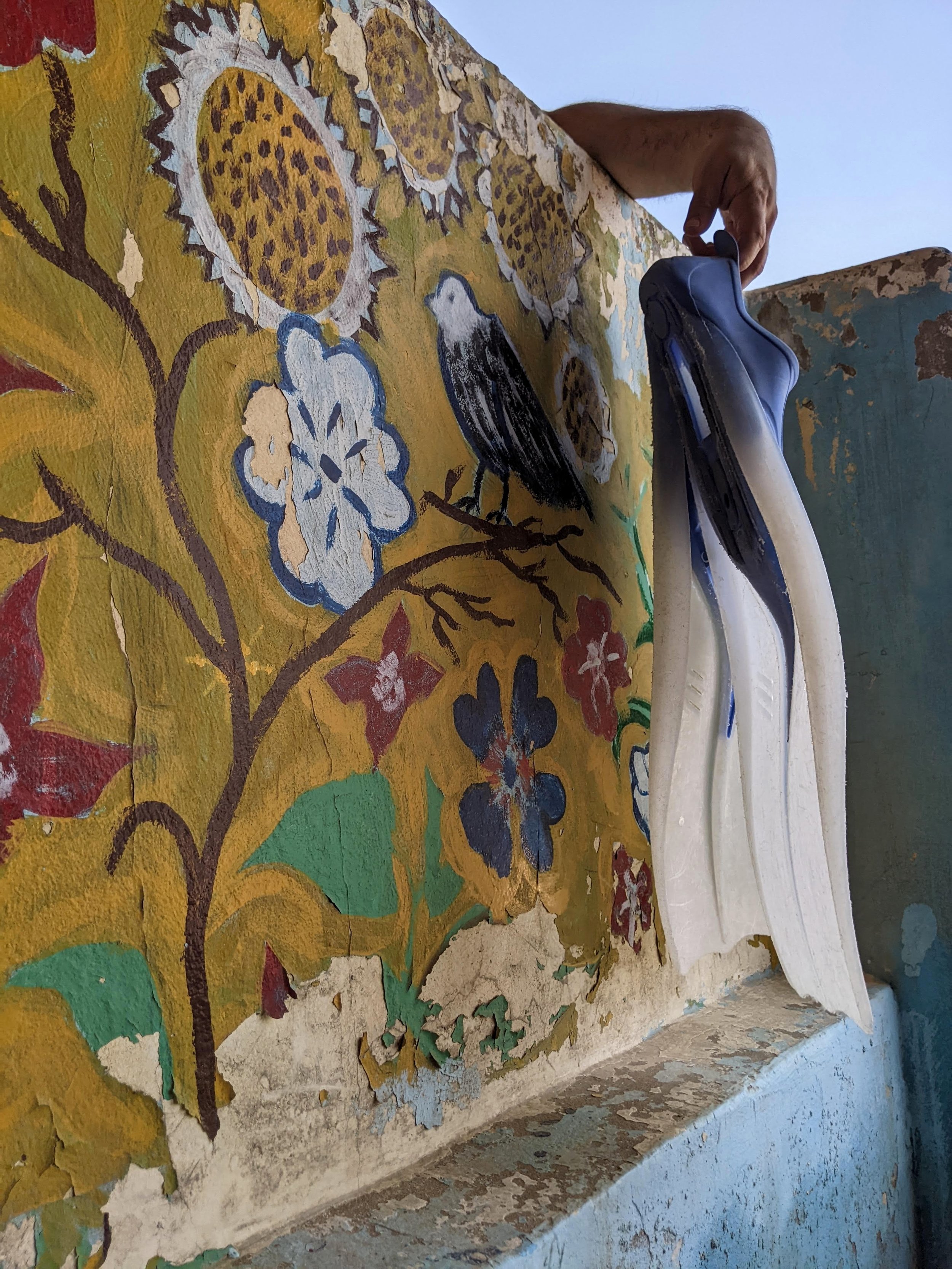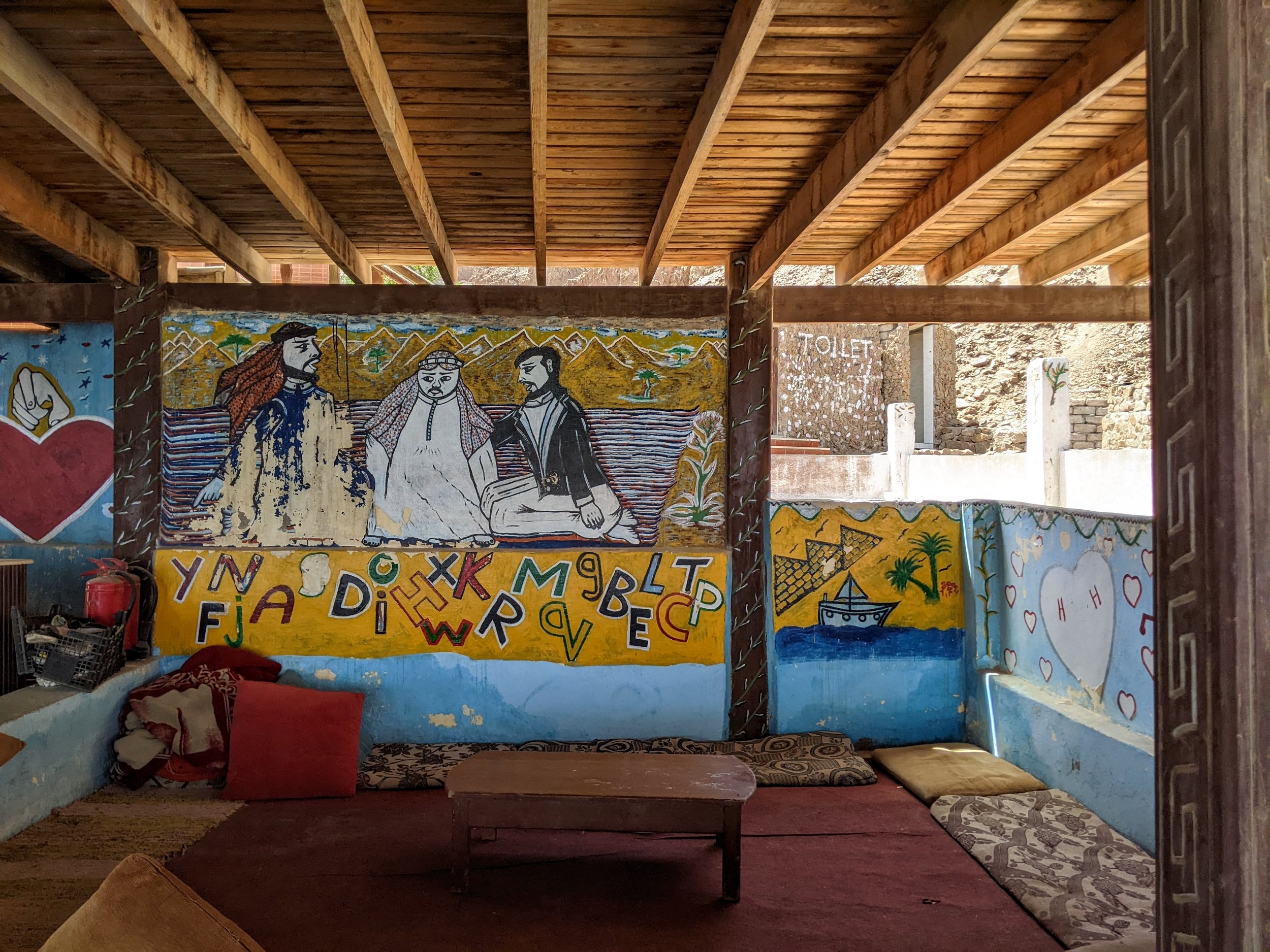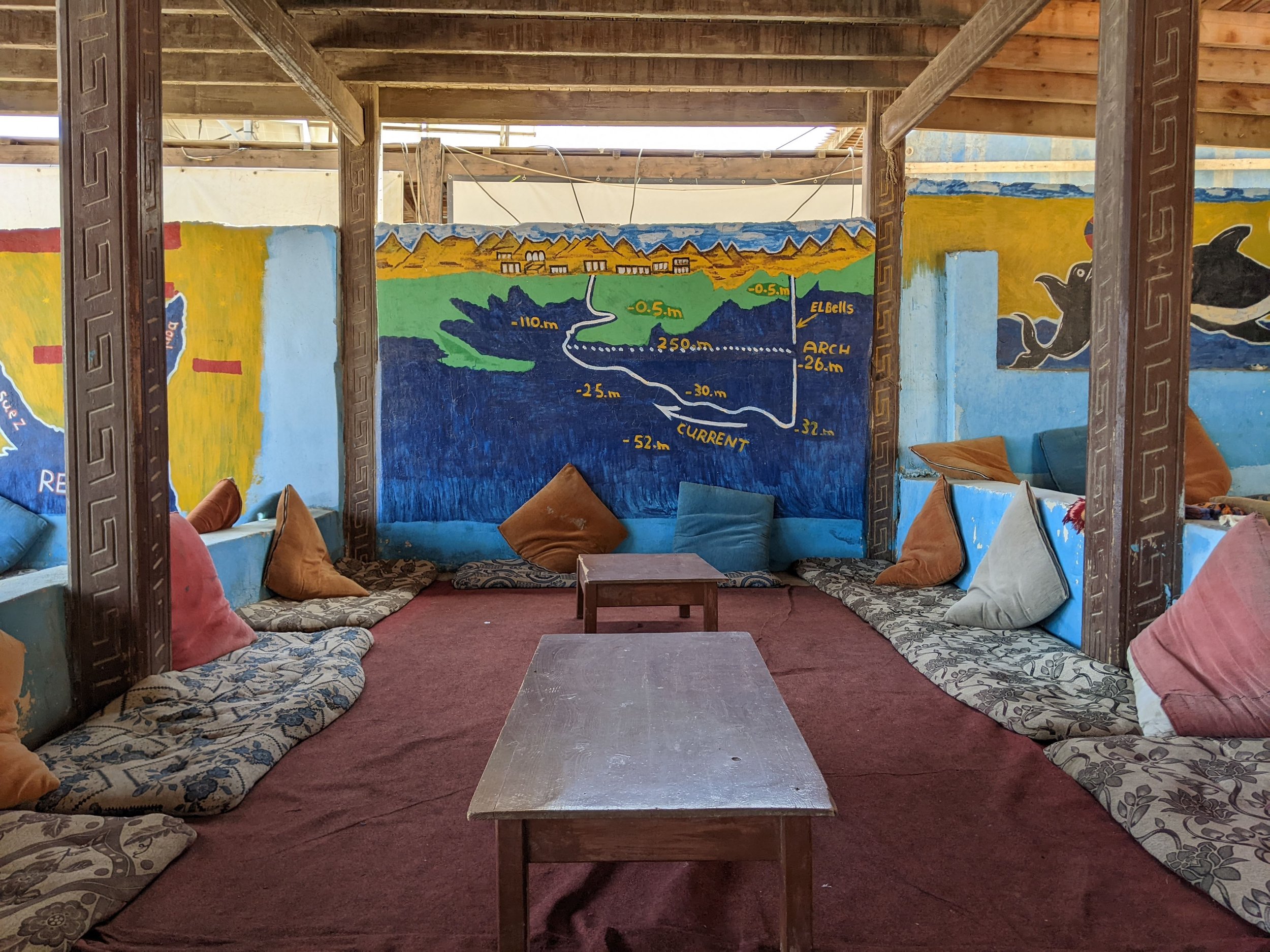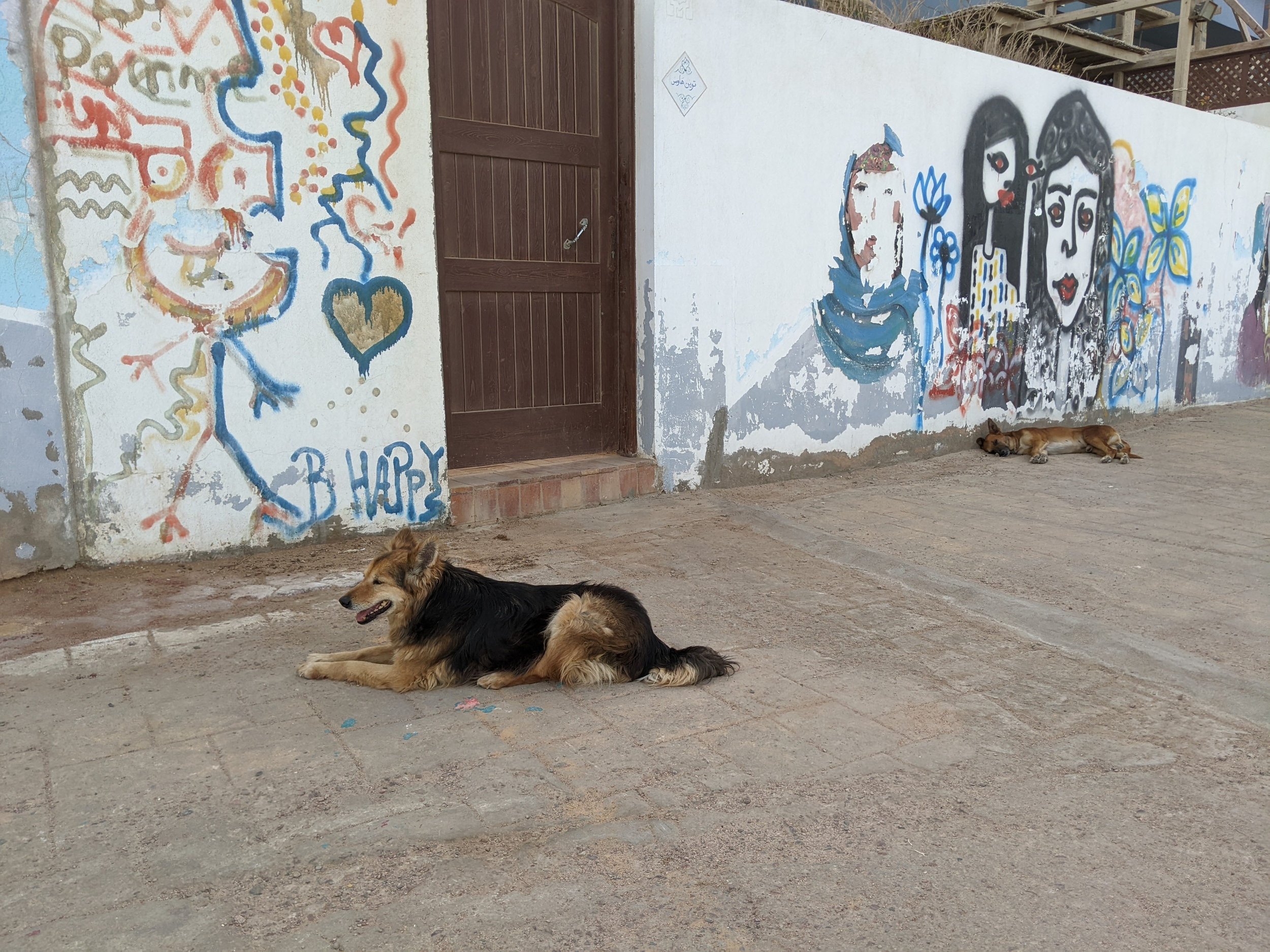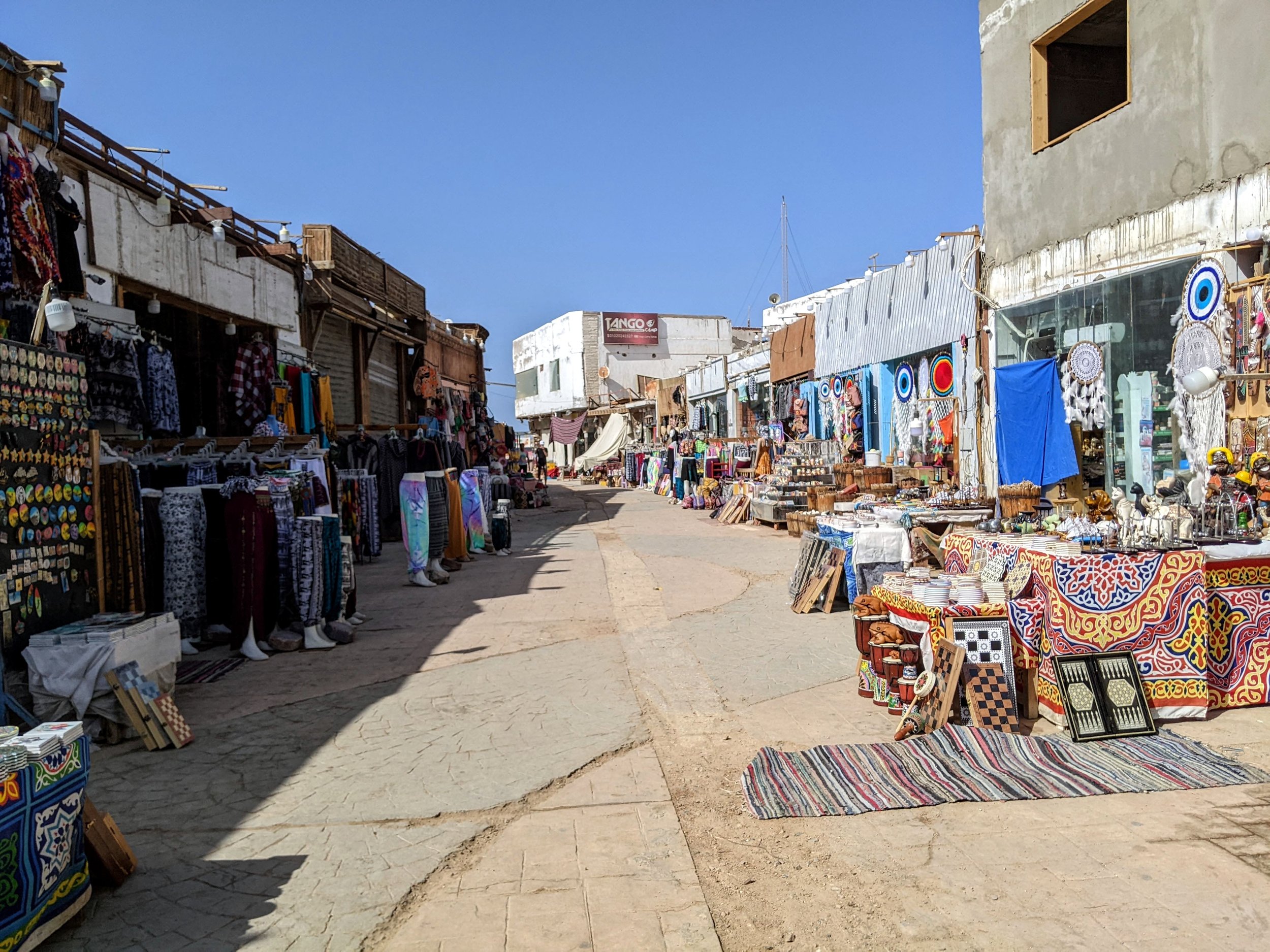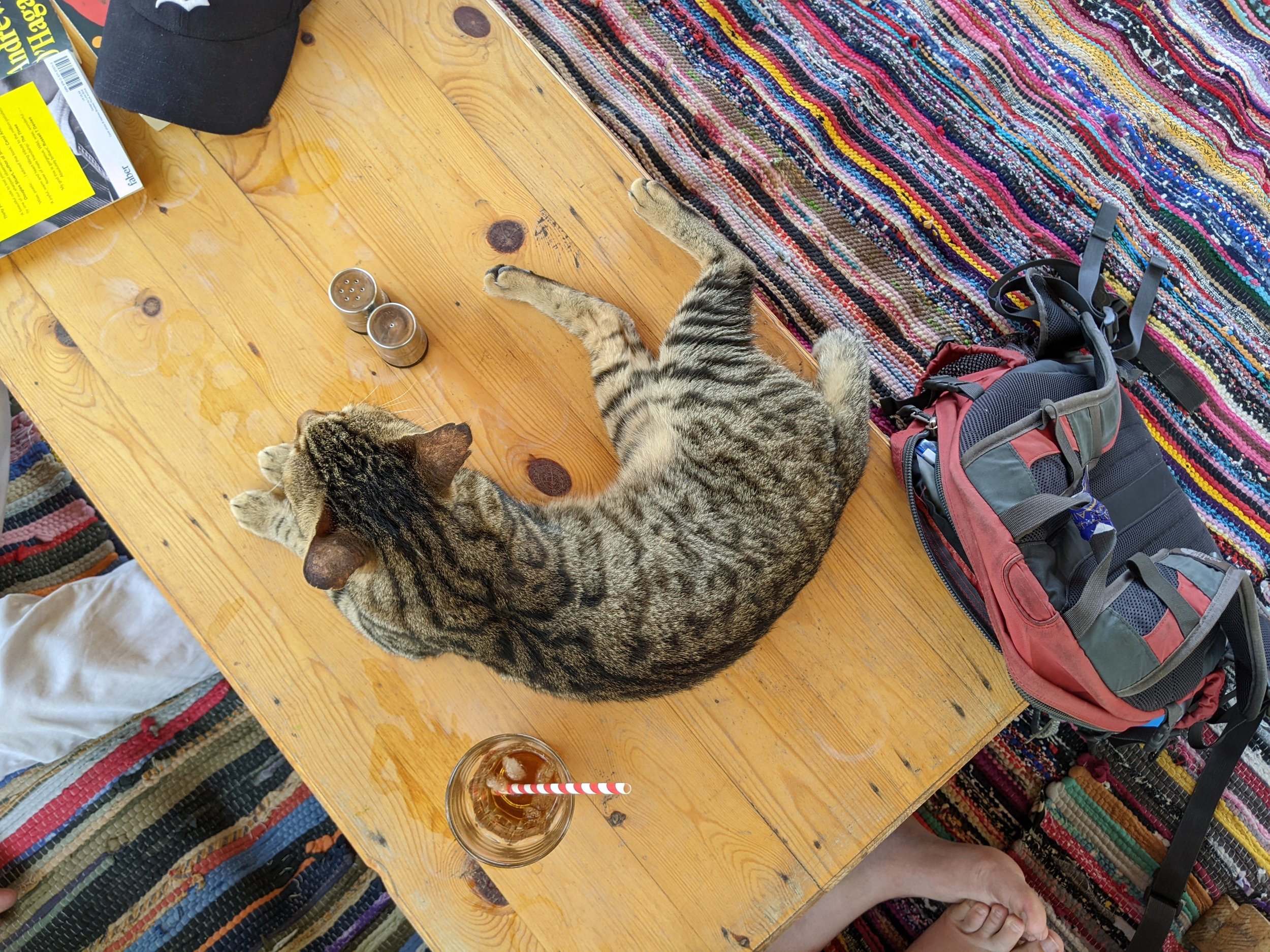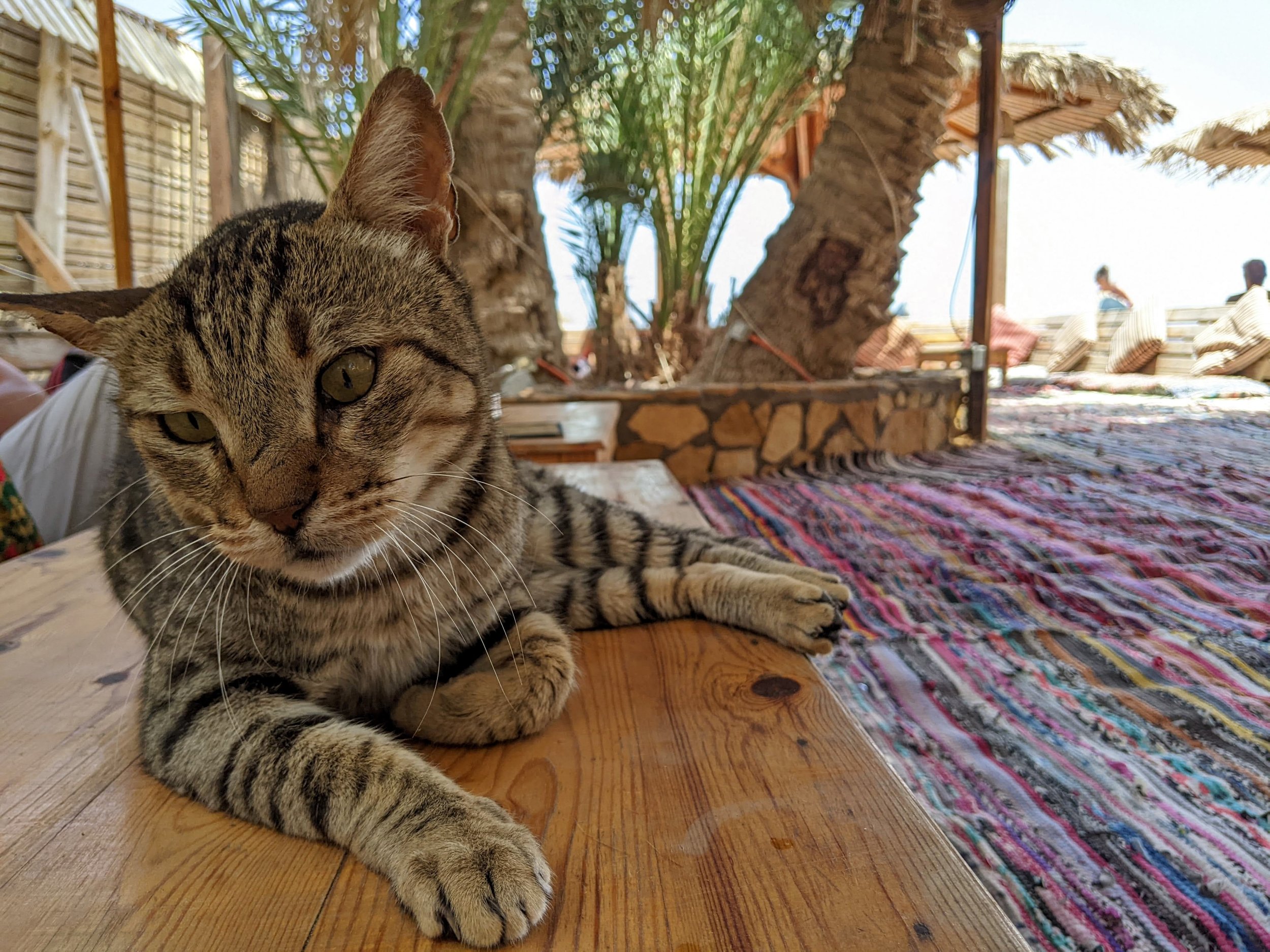dahab and the blue hole
My dear friend,
I realize now that in the flurry of spring travel and summer plans, I completely forgot to tell you about Dahab. We’re headed back to the Sinai Peninsula today, and even though we’ll be in the desert instead of on the sea, Dahab—this beach-lover’s, kite-surfer’s paradise on the southeast coast of the Sinai—has been on my mind.
I’ve written to you already about Sharm el-Sheikh, the Red Sea resort town popular with Russians and Ukrainians, and others from the former Eastern Bloc. We encountered no other Americans during our stay in Sharm last fall. When Russia invaded Ukraine six months after our visit, we remembered the sound of Slavic conversations filling up the shared dining rooms and we read about the Russians and Ukrainians stranded together in the same holiday hotels and we worried about the impact of the war on Egyptian tourist towns. I imagine that the famously “charming Sharm” looks very different now.
Dahab—a word which means “gold”—is northeast of Sharm-el-Sheikh, is also on the Red Sea, and is known for its relaxed atmosphere. This is a town of small sea-side hotels and bright airbnbs rather than expansive five-star resorts. Although most people believe that the name “Dahab” refers to the gold sky above the sea or the golden sand that storms sometimes stir up into the waves, a few sources suggest that the name is a misinterpretation of the Arabic phrase “time goes.”
It’s true that the pace of life here is laid-back, unhurried. The days tend to blend together; the “time” does, in fact, “go.” One comes to Dahab from Cairo to relax: to drink fruit juice, to play backgammon by the shore, to snorkel and (if you are braver than I am) to dive. The traffic is lighter in Dahab than Cairo—so crossing the street doesn’t feel as perilous—and the rules are so loose that I could wear sleeveless tops outside without attracting excessive attention.
We’d booked an airbnb with two friends from Cairo. Although we had not expected it to feel as pastoral as it did, we soon grew accustomed to the goat herd that greeted us on our way to and from the apartment and we learned to look for the little goat head that, at the sound of our approach, would sometimes poke out of a long stone enclosure.
The key to a successful Egyptian adventure lies, I’ve discovered, in the cheerful management of one’s expectations. Though now that I say this to you, I see that it’s probably the key to any adventure, anywhere.
Yes, the bedroom smelled a little agricultural, but we were only a short walk from the beach.
Yes, the advertised air conditioning wasn’t working, but we could catch a breeze on the lovely rooftop patio. In the evening, we snacked on pistachios and cucumbers from the market and sipped the cheap red wine we’d purchased at a local liquor store. It turns out that wine is much easier to come by in Dahab than in Cairo, where one finds it almost exclusively at a shop called, annoyingly, “Drinkies” (!) or the handful of bars that make most of their money from thirsty expats.
And yes, I was spending more time than the rest of our group at my laptop, grading final papers, but I didn’t really mind reading Shakespeare analyses—especially when the view was so lovely. As Will himself would say (Henry IV, Part 1)—“the time of life is short; To spend that shortness basely were too long…”
I missed one snorkeling excursion because of my grading, but I joined C. and our friends on their day trip to the Blue Hole. At the time I assumed that the Blue Hole was just a nice name for a pleasant swimming area in the Red Sea. I didn’t realize until our arrival that it’s one of the most famous scuba-diving spots in the world, largely due to the number of divers who die there every year. The site is a submarine sinkhole with an 85-foot-long tunnel called “the arch.” People say that the lure of the arch, which glows underwater with refracted sunlight, is a kind of siren call that draws overconfident divers to their deaths.
I learned much of this on the drive out, the warm wind whipping through the open windows. We admired camels chilling, Dahab-style, by the sea. We blew past the skeletons of cafes, and construction sites that looked (as they often do) half-finished.
I assumed that once we reached the famous Blue Hole, it would feel more touristy. I imagined us jostling through crowds of divers at smoothie bars and browsing through beachside shops. But for such a well-known diving site, it was—unassuming.
The owner of an empty restaurant let us park our car next to his place, as long as we ordered some food and rented our snorkeling gear from him. We were also permitted to use the well-advertised toilets.
We climbed up the stairs and chose the pillows with the most scenic view. Although, it was all very scenic. Even if the place had been full, it would have been hard to miss the sight of the Red Sea.
We sipped our fruit juices. Those of us who didn’t own flippers and masks rented them. There was no way that I was going to dive—it requires a specific certification level to attempt the Blue Hole, anyway—but I figured that there couldn’t be much harm in kicking around with a snorkel mask at the surface.
Overall, we spent about a half hour in the Blue Hole. We splashed over the reef, spitting seawater through our snorkel tubes and admiring the corals and the tropical fish. The colors were truly breathtaking—and not only because my malfunctioning mask and tube meant that I kept getting spurts of water in my lungs. This part of the Red Sea is famously warm and clear (part of the reason why so many divers underestimate the depth and danger of the Blue Hole), but by the time we splashed back to the shore, my skin was clammy and goose-bumped.
I wasn’t able to take any photos, but afterwards I found videos online from snorkelers who’d brought cameras. Once I started watching those, I fell into a virtual “blue hole” of sorts (forgive me), and suddenly I was elbows-deep in scuba-diving articles and half an hour into a documentary about why so many divers have perished here. Evidently, the “curse” of the Blue Hole has many possible causes: the nitrogen narcosis that can leave a diver disoriented, confused; the sunlight through the underwater arch that a diver might mistake for the surface; a tunnel that looks much shorter than it actually is.
According to an article in Der Spiegel: “The rule of thumb among divers is that every 10 meters corresponds to a martini, and first-time drinkers quickly get tipsy. At as little as 30 meters, an inexperienced diver can become confused as a result of what's called nitrogen narcosis. When the rising pressure causes too much nitrogen to become dissolved in the bloodstream, divers lose their judgment. There are divers who have been inside the tunnel with compressed air in their tanks, and who swear that they heard a Bach organ concerto. Others report memory lapses or that they felt as if they were stoned.”
I don’t like thinking about divers becoming disoriented, but I can’t help but be drawn to the idea of Bach concertos playing at such great depths. Still, it’s not quite enough to seduce me into attempting the dive, myself.
There’s an area with memorials to lost divers just a short walk down the path from the restaurant where we’d settled in for the day. As one of the Blue Hole documentarians points out, the memorials are telling in part because of the pattern they reveal about the individuals who died in the Blue Hole: all but one of them were men, and most were in their early twenties to early thirties.
Perhaps it’s because I’m not as young or as masculine as most of those divers were—but when my group decided to return to the water for a second snorkeling excursion, I opted to remain behind in the empty restaurant. I lounged on the pillows and gazed at the murals and studied my Arabic flashcards and wondered what age I’d been when I’d stopped feeling invincible. Then I tried to remember if I’d ever felt invincible at all.
When we returned our snorkeling gear and told the owner that my mask and tube had leaked, he shrugged and tossed the pieces back into the crate with the rest of the working sets. I had the feeling that they would remain there until the next tourist arrived. On the one hand, this doesn’t seem like particularly responsible proprietorship; on the other, I suppose that if one’s only challenge at the Blue Hole is a leaky snorkel tube, one has probably gotten off easy.
Now that I’ve read more about this diving site, I think about the gravel road back to Dahab a little differently. It took us about thirty minutes to return to town, which means it would take about the same amount of time to get an injured or oxygen-sick diver from the Blue Hole to the hospital. There are no ambulances on site.
That remoteness is partly why Dahab feels so separate from a place like Cairo, I suppose. Its isolation, its suspension in time, typically feels like a gift—as long as everything goes according to plan.
We whiled away our remaining time in Dahab petting dogs, walking through markets, and eating french fries.
We even made friends with a very old cat who had the most gravelly meow I’d ever heard. We dubbed him Basket and agreed to let him lounge on our table.
I thought a lot about how strange it was to go to Dahab for a “break” from Cairo, when it’s tempting to see Cairo itself as a “break” from—everything else. We’re here for C.’s job, of course, and I’m doing the same kind work (writing, revising, editing, grading) I do in Minneapolis. But we’re definitely distant: there’s far more than a thirty-minute gravel road separating us from everyone we love in the States.
Sometimes, on the days when the electricity goes out and my stomach acts up, I wonder: And for what? Is the adventure worth all this?
It’s easier and safer and more comfortable to stay home… Yet I doubt that we’re the only ones who have succumbed to siren calls like these. Don’t you, too, have your own underwater arches? The people, the experiences, the challenges that drew you from the shore, that you’re glad you opened yourself up to?
(“The time of life is short; To spend that shortness basely were too long…”)
I know that none of us are as young as we used to be! I know that we’re not invincible. But I hope that even after I return home, and even as I get older, I find other ways to take that plunge.
Yours—L.




